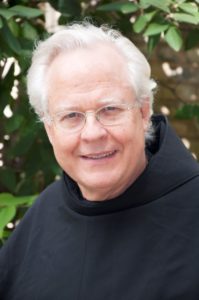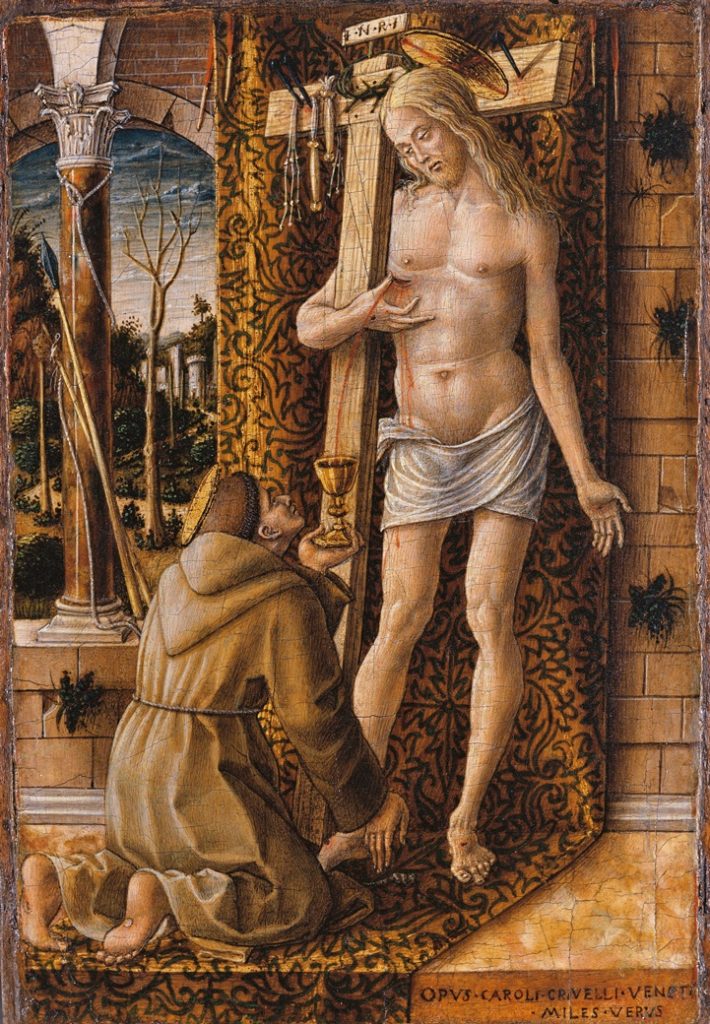The Triumph of the Cross and Stigmata of St. Francis of Assisi – September 17
Texts: Gal 6, 14-18; Lk 9, 23-26.
Theme: A new creation is everything (Gal 6);
Subtheme: Those who are ashamed of me and of my words, of them the Son of Man will be ashamed (Lk 9). NRSV
Love for the Eucharist: Principles to Align and to Choose
Over 800 years ago, St. Francis of Assisi led a Eucharistic crusade to rekindle understanding, respect and love for the real presence of Christ in the Eucharist. Our times mask the recurrent problem of growing cold in understanding, love and reverence for the Eucharist. In times that are uncommonly difficult, how do we deal with our duties towards God and our duties to society and the State. Our duties towards God and the State are different. Often enough they are seen as contraries. When our duties are contraries, what do we do? We often dance around issues as long as we can. We wait to make difficult decisions until we cannot defer any longer. The truth is that we do not hate the world, the State or society, but we have to align, which means to weigh our duties, our abilities, and the quality of our Christian example. When duties towards God and duties towards the State are contraries, we have to do more than align; we have to choose.
St. Francis of Assisi said: YES to the real innovation of Christianity, the truth in the Second Person of the Trinity as God and Man, the hypostatic union, by which the atonement and transforming forgiveness of sins is from above, and beyond our capability and incapability to explain. The Truth took on our human nature, was born in time, loved us and consumed our guilt in the fire of his love. To listen to conscience is to become free to hear the message of conscience. Truth becomes a yoke that is not too heavy. YES, we have the right to try to escape from extremities that God allows to come our way, to try to reconcile the demands of divine and human law, the laws of the Church and laws of the State. Thomas More’s precise teaching justifies our natural desire to escape what God allows us to suffer.
The Eucharist is the center of the Church’s life. We live with real and apparent contradictions. Pope Benedict teaches: “Jesus is the lodestar of human freedom; without him freedom loses its focus, without the knowledge of truth, freedom becomes debased, reduced and alienated to empty caprice. With Jesus, freedom finds itself.”[1] St. Francis imitated Christ perfectly. He suffered with Christ’s wounds. St. Thomas More (martyred 1535) aligned with Christ’s suffering. As a statesman, he exemplified the license to defer, to compromise as inevitable, and how to religiously sanction compromise.
Guided by the wisdom of the Holy Spirit, the Second Vatican Council reminded us that in every age of the Church’s history, the eucharistic celebration is the source and summit of her life and mission. “The Eucharist makes us discover that the Christ, risen from the dead, is our contemporary in the mystery of the Church, his body.”[2] As our primary teachers on the wonder that the eucharistic mystery must awaken in the hearts of the faithful, the American Bishops are leading the faithful towards a renewed Eucharistic crusade that aligns with Eucharistic crusades throughout history. May the Virgin Mother of our Savior assist us to ignite a new Eucharistic “awe and love.” May the Holy Spirit fill us with the same ardor experienced by the disciples on the way to Emmaus (Lk 24: 13-35)![3]
Sts. Francis and Thomas witness the persuasive authority of Eucharistic truth in our secular age. Conscience formation, prayer and discussion of love for the Eucharist pivots on: (1.) alignment and choice; (2.) the Christian license to defer; and, (3.) compromise that is religiously motivated.
- Principle one: alignment is horizontal; choice is vertical. As a young man, Francis hesitated. Prayer led him to align with the Gospel and to choose to become like Christ. God gave him the gift of the sacred stigmata, the wounds of Christ. Thomas More was married and after his wife died, remarried. He aligned with King Henry VIII as a lawyer and loyal chancellor, but, in the end, chose God over the King.
- Principle two: the Christian is licensed to defer. Francis tried to defer, to become a knight, but grace overpowered him. Thomas More exemplified the genius of Catholicism to attempt to compromise. Compromise is relative rather than absolute. His skills were in loyalty to duties of the State, ability to reconcile with duties to God and duties to neighbor. When these duties became contraries, fidelity to conscience and religious motivation won the personal crisis, his license to defer.
- Principle three: claims of compromise by forming conscience needs religious motivation. Thomas More tried every legal avenue to escape taking the oath of supremacy to King Henry VIII. The inconvenient truth of the papal denial of the king’s petition for an annulment prompted Henry to make himself the Head of the Church of England. We live with consequences of the “rebellion.”
St. Thomas was caught in a dangerous ordeal that no one desires, deferred, and with legal skills compromised as far as possible. As the pressure mounted, he remained silent of criticism of the King, but in the end, Thomas’ religious conviction sealed his fate. He was condemned to death and martyred in full sight. When Thomas was going up the steps to the platform to be executed so all could see, he thanked the executioner for help and added that he would not need any help on the way down.
At his final earthly judgment, St. Thomas More said: “I am the King’s good servant, but God’s first.” In his Letter to the Galatians, St. Paul described all Thomas Mores as “A new creation [which] is everything” (Gal 6). St. Paul was blunt with the Galatians. “You foolish Galatians! Who has bewitched you? It was before your eyes that Jesus was publicly exhibited as crucified” (Gal 3). St. Paul reminded the Galatians that they had started with the Spirit, then relied upon doing the works of the law for their justification and redemption. “[How could] you be so foolish?” It is not doing the works of the law but “a new creation [that] is everything.” St. Paul cried out: “May I never boast of anything except the cross of our Lord Jesus Christ, by which the world has been crucified to me, and I to the world” (Gal 6).
St. Thomas More’s convincing example is a virtue of attempted reconciliation that goes beyond the virtue of prudence. His choice to remain silent and not to speak out in public against the king prompts deeper reflection. In the end, Thomas More’s loyalty to King Henry VIII and his faithful silence did not help for he was executed by his friend over an inconvenient truth. How many similar martyrs are there? History attests to countless examples of loyal martyrs, bloody and unbloody or emotional.
Discussions about reception of the Eucharist and Catholic politicians who do not align with Catholic teaching are very painful. One side wants to escape, by which I do not mean running away from responsibility. The other side wants to align with the power of the lie, which is deaf to the internal promptings of truth. Yet, to be in denial of the consequences of our acts and deaf to the present judgment of conscience puts us into a perilous space. Vatican II confirms that the truth wins with gentleness and power.[4] God allows and uses sinners, frail and weak persons, to do his will.
How do we invite understanding, respect, and “awe” for God’s seven sacraments? How do we avoid weaponizing them? Christ became the food of truth inviting everyone to the truth about love!
In Celebration of My Golden Jubilee Year of Priesthood, Fr. Edward J. Ondrako, O.F.M.Conv.[5]
eondrako@alumni.nd.edu
___________________________________
[1] Pope Benedict XVI, Sacramentum Caritatis, (Vatican: 2007), 2. The Eucharist is the very center of her life.
[2] Sacramentum Caritatis, 3. Ritual forms are orderly from antiquity.
[3] Sacramentum Caritatis, 97. This is key to theological development on the Eucharist.
[4] See Vatican II, Decree on Religious Liberty, Dignitatis Humanae. Memory has a freshness for modernity.
[5] See P.D.Fehlner, Theologian of Auschwitz (Hobe Sound, FL: Lectio Press, 2020); E. Ondrako, Rebuild My Church (Hobe Sound, FL: Lectio Press, 2021). Fehlner explicates St. Francis and Ondrako amplifies Fehlner’s Franciscanism.
Fr. Edward J. Ondrako, OFM Conventual
Research Fellow Pontifical Faculty of St. Bonaventure, Rome
Visiting Scholar, McGrath Institute for Church Life
University of Notre Dame
September 17, 2021

